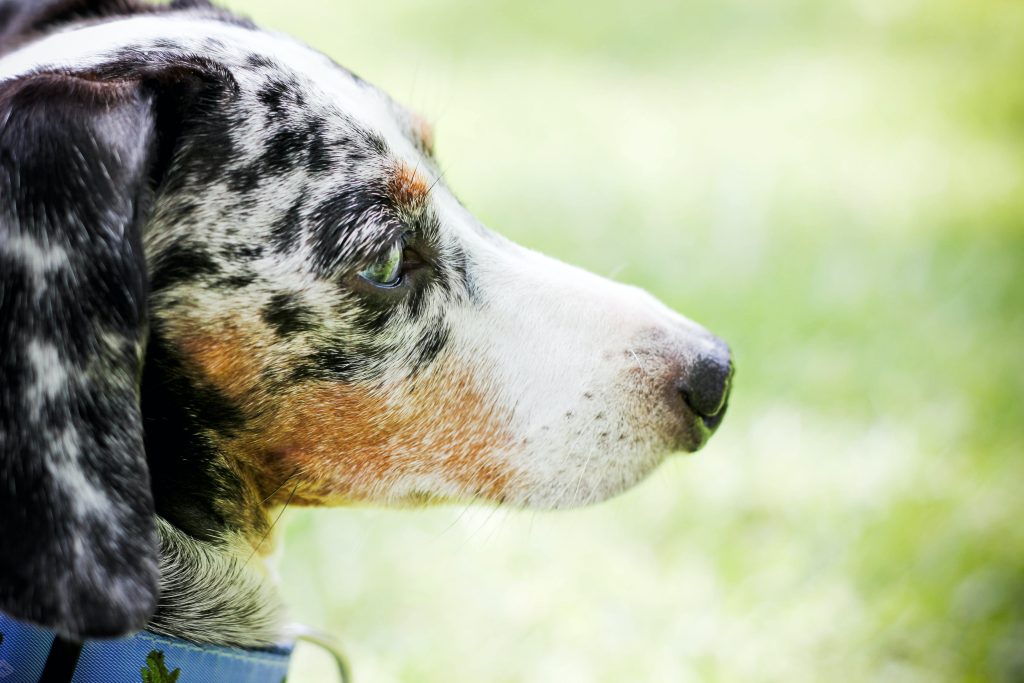What do dogs think?
Welcome to the fascinating world of canine cognition! Today we’re going to delve into the above question that has fascinated and puzzled dog lovers for centuries
As we humans have developed an ever-closer relationship with our furry best friends, we have become increasingly curious about what goes on inside those adorable little heads of theirs. Do they experience emotions as we do? When they sleep do they dream? Do they have the capacity for self-awareness and abstract thought?
Join us on this intriguing journey as we explore the latest scientific research on canine psychology and behaviour, and uncover some surprising insights into the inner workings of our beloved four-legged companions.
Get ready to be amazed by what we discover about the incredible mental capabilities of man’s best friend!
Do Dogs Think Like Humans?

There’s a common belief that dogs think the way humans do. This is in fact, untrue.
Dogs have a different cognitive and perceptual system than humans. Their brain structure is different, they have different senses, and they process information differently than we do.
For example, dogs rely heavily on their sense of smell, which is far more powerful than our own. They also have a different way of seeing the world than humans and are less sensitive to details and colours.
Lastly, dogs lack the language and reasoning abilities that we humans have. So, when confronted with which toy to play with, they’re not mulling it over verbally… but we’ll get to that
What Do We Know About Dog Cognition?
So, what do we know about dog cognition? You’re in for a treat because these results are fascinating.
Firstly, did you know that dogs are smart cookies? That’s right! They’re not just cute and cuddly, they’re also quite clever. In fact, dogs have a unique set of cognitive abilities that set them apart from other animals.
For example, dogs have an amazing sense of smell. Their noses are so powerful that they can pick up scents that are too faint for us humans to detect. This is why dogs are often used in law enforcement to sniff out drugs, explosives, and even missing people!
And that’s not all… Dogs also have great memories. They can remember people, places, and things that they haven’t seen in a long time. That’s why your furry friend can get so excited when they see someone they haven’t seen in a while.
And let’s not forget about their precocious problem-solving skills! Dogs have been known to figure out complex puzzles and even learn how to open doors and cabinets. That’s why it’s essential to keep your treats and other valuables in a safe place.
But perhaps the most amazing thing about dog cognition is their ability to read human emotions. Dogs are extremely empathetic and can pick up on our moods and feelings. They can even detect changes in our body language and tone of voice to know when we’re happy, sad, or angry.
No wonder they’re the best company!
Research Conducted On What Dogs Think

Firstly, did you know that dogs are one of the most well-studied animals regarding behaviour and brain activity? That’s because they’re our loyal companions and have lived alongside humans for thousands of years.
So, what have we learned about our furry friends? Well, one study used fMRI scans to examine their brain activity when presented with different scents. The results showed that the area of the brain responsible for processing smells was much larger in canines than in humans. This helps explain why they have such an incredible sense of smell and can track scents for miles!
Another study focused on dogs’ social behaviour. Researchers found that when fur babies and their owners gazed into each other’s eyes, both the dog and the owner experienced an increase in oxytocin, also known as the “love hormone.” This suggests that the bond we share with our furry friends is similar to that between parents and their children.
But it’s not just their social behaviour that’s fascinating. One study looked at the way dogs process information and found that they rely on the left hemisphere of their brain to process words and intonation, just like humans do. This helps explain why dogs seem to understand certain words and phrases, and even the tone of our voices.
And let’s not forget about the many studies that have explored dogs’ problem-solving skills. One study found that they can use their noses to solve complex problems, like opening a puzzle box to access a treat. Another remarkable study found that dogs can even learn from each other, and can pick up new skills by watching other four-legged fluff balls!
What Do Dogs Think?
So, we’ve already learned a lot about dog cognition and the studies to back up the science.
It’s time to et’s take a deep dive into what our furry friends are pondering…
Dogs are fascinating creatures with a complex range of thoughts and emotions. From their wagging tails to their eager expressions, it’s clear that dogs are always thinking about something!
First and foremost, dogs are social creatures, and they’re constantly thinking about their place in their human family’s pack. They’re always seeking attention, affection, and approval from their owners, and they communicate with us in a variety of ways, from barking and tail wagging to licking and snuggling.
We’ve also mentioned their strong sense of smell, an ability which means that they experience the world in a way that’s completely different to us. They can detect scents that we can’t even begin to imagine, and they use their noses to explore their environment, find food, and identify other animals and people.
When dogs play, they’re not just burning off energy – they’re also engaging in a form of socialization that helps them to learn about their environment and other dogs. They use play to establish dominance, learn new skills, and build social bonds with other dogs and humans.
At the end of the day, dogs are intelligent, curious, and deeply emotional animals. They’re always thinking about their place in the world and how they can best interact with the people and animals around them. So the next time you’re petting your furry friend, remember that they’re probably thinking about a whole lot more than just belly rubs!
The Role of Breeds

Dogs are one of the most diverse animal species in terms of their breed and individual personality. From tiny Chihuahuas to giant Great Danes, from energetic Retrievers to calm Bulldogs, every dog breed has its own unique set of characteristics and tendencies that make them stand out.
So, let’s talk about the role of breed and individual personality in dog behaviour.
Firstly, breed plays a significant role in determining a dog’s behaviour. It’s like a blueprint for their temperament, energy level, and natural instincts. For example, the Border Collie breed is known for its intelligence, athleticism, and herding instincts. On the other hand, the Basset Hound breed is known for its laid-back personality and excellent scent-tracking abilities.
However, it’s essential to remember that every dog is an individual with their own personality. Just like humans, dogs have different likes, dislikes, and quirks. Two dogs from the same breed can have completely different personalities. Some dogs may be more outgoing and sociable, while others may be more reserved and independent.
So, while breed can give us a general idea of a dog’s behaviour, it’s crucial to consider each dog’s individual personality when assessing their behaviour. For example, a Golden Retriever may be generally friendly and outgoing, but a particular Golden Retriever may be shy or aggressive due to its individual personality!
Moreover, a dog’s behaviour is also influenced by their environment, training, and socialization. A well-trained and socialized dog is more likely to have better behaviour than an untrained or poorly socialized dog, regardless of their breed or individual personality.
All in all, breed plays a big part in personality but every dog is unique and trust us when we tell you, your furry friend is totally unique.
Common Misconceptions About The Way Dogs Think
Dogs are like furry humans: While dogs may be our best friends, they don’t think like us. They don’t ponder the meaning of life or discuss the news. They mostly think about belly rubs, treats, and chasing squirrels and that bone buried in the back garden…
Dogs understand everything we say: Sorry to burst your bubble, but dogs don’t understand human language the way we do. They might recognize certain words and phrases, but they mostly rely on tone of voice, body language, and context to figure out what we want.
Dogs feel guilty when they do something wrong: You know that heartbreaking look your dog gives you when you come home to a chewed-up shoe? It’s not actually guilt – it’s just a reaction to your angry tone of voice and body language. Dogs don’t have a sense of morality or the ability to feel guilt.
Dogs are dominant or submissive: The idea of the “alpha dog” or pack leader has been debunked, but some people still think that dogs are either dominant or submissive. In reality, dogs are individuals with their own personalities and preferences, just like humans.
Dogs don’t have emotions: Some people believe that dogs don’t experience emotions like happiness, sadness, or love. But anyone who’s ever seen a tail wagging or a dog cuddling up to their owner knows that dogs can have a wide range of emotions.
Final Bark
Dogs are mysterious creatures with mysterious ways… Looking into the way they think and see the world is a challenge that scientists are still learning more about with every study.
Looking after a dogs needs can be a massive challenge, however, at BusterBox, we make that easy by providing the best dog treat box found in the UK & Ireland. We promise the benefits are great and our reviews are even greater. Check us out today and see how you can just the British Isle’s happiest pack!



